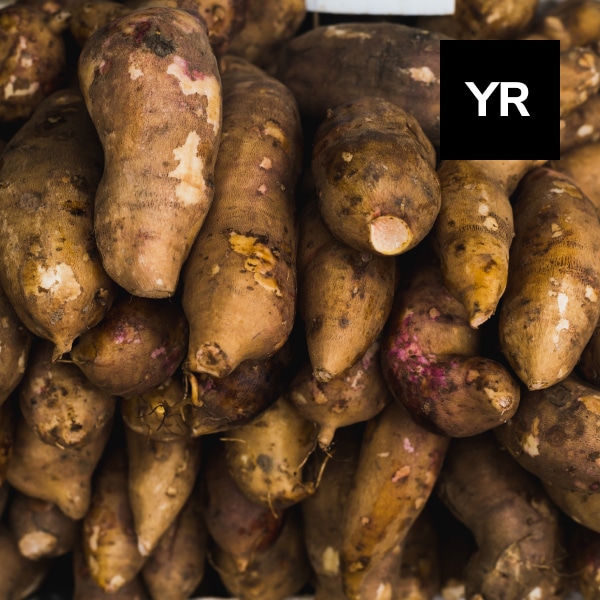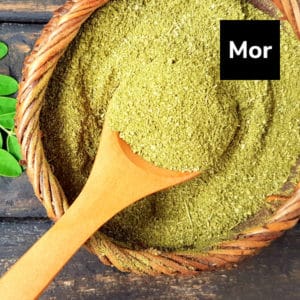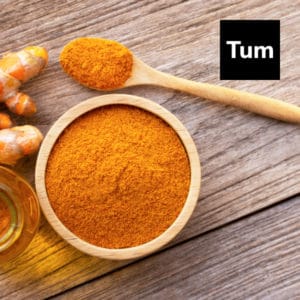Overview
Yacon (Smallanthus sonchifolius) is a perennial herbaceous plant belonging to the Asteraceae family. It is naturally sweet and resembles sweet potatoes. It is linked to sunflowers and Jerusalem artichokes. Likewise, it has a similar texture and flavor to an apple. Furthermore, it is indigenous to South America’s Andean area and is a rich source of fructooligosaccharides (FOS). Due to its high fiber content, it is gaining favor in the natural foods sector for its usage as an appetite suppressant, natural sweetener, and prebiotic.
Key Benefits
- Encourages a healthy weight.
- Aids in digestion.
- Promotes healthy cholesterol levels.
- Assists in maintaining a healthy gut flora.
- Contributes to mineral absorption.
- Provides significant antioxidant protection.
History of Usage
For millennia, Smallanthus sonchifolius has been cultivated throughout South America. This root crop is a traditional staple in a variety of civilizations and has just recently expanded into other places. After the Spanish invasion, yacon usage practically disappeared; however, it has recently regained favor in Peru and Japan as a diet sweetener.
In the late 1970s, Yacon was initially planted in New Zealand, spanning Japan, the Czech, South Korea, and Brazil in the 1980s and 1990s. Yacon was introduced to Japan in 1984 by a seeding firm based in New Zealand. Today, yacon root is becoming more readily available in health food stores around the United States and worldwide.
Biochemistry
Yacon root includes prebiotic fructans, such as fructooligosaccharides and inulin. Fructans are not digested in the small intestine, but instead move to the large intestine, where they can help maintain healthy gut microbiota by acting as a source of food for beneficial bacteria. Additionally, it contains a chemical called yaconine, which aids with blood circulation.
Yacon contains approximately 70% to 80% fructooligosaccharides and inulin as carbohydrates. These ingredients have a low glycemic index and do not produce blood sugar increases. Yacon root has been demonstrated to have hypoglycemic properties and may help to reduce insulin resistance and blood insulin levels.
Yacon contains a high fiber content, which aids digestion and promotes satiety.
Yacon includes a polyphenol called chlorogenic acid, which is known for its powerful antioxidant properties. Potassium, calcium, and magnesium are abundant in yacón tubers.
Recent Trends
Yacon flour is a natural fiber supplement that has been shown to be an effective adjuvant in nutritional regimens for weight loss.
The root has a poor nutritional value but a high fiber content, making it valuable in the food sector as a plant-based sweetener. It is consumed fresh, cooked, extracted for syrup, and even fried to make yacon chips.
Syrups, powders, and capsules of yacon root extract are available.
Precautions
- Flatulence, nausea, stomach discomfort, and diarrhea are possible side effects.
- Individuals with irritable bowel syndrome (IBS) or intolerance to FODMAP fibers should avoid yacon root.
References
- Caetano BF, de Moura NA, Almeida AP, Dias MC, Sivieri K, Barbisan LF. Yacon (Smallanthus sonchifolius) as a Food Supplement: Health-Promoting Benefits of Fructooligosaccharides. Nutrients. 2016 Jul 21;8(7):436. doi: 10.3390/nu8070436. PMID: 27455312; PMCID: PMC4963912.
- Genta S, Cabrera W, Habib N, Pons J, Carillo IM, Grau A, Sánchez S. Yacon syrup: beneficial effects on obesity and insulin resistance in humans. Clin Nutr. 2009 Apr;28(2):182-7. doi: 10.1016/j.clnu.2009.01.013. Epub 2009 Feb 28. PMID: 19254816.
- Adriano LS, Dionísio AP, Abreu FAP, Carioca AAF, Zocolo GJ, Wurlitzer NJ, Pinto CO, de Oliveira AC, Sampaio HAC. Yacon syrup reduces postprandial glycemic response to breakfast: A randomized, crossover, double-blind clinical trial. Food Res Int. 2019 Dec;126:108682. doi: 10.1016/j.foodres.2019.108682. Epub 2019 Sep 15. PMID: 31732062.
- Cao Y, Ma ZF, Zhang H, Jin Y, Zhang Y, Hayford F. Phytochemical Properties and Nutrigenomic Implications of Yacon as a Potential Source of Prebiotic: Current Evidence and Future Directions. Foods. 2018 Apr 12;7(4):59. doi: 10.3390/foods7040059. PMID: 29649123; PMCID: PMC5920424.
- Gomes da Silva MF, Dionísio AP, Ferreira Carioca AA, Silveira Adriano L, Pinto CO, Pinto de Abreu FA, Wurlitzer NJ, Araújo IM, Dos Santos Garruti D, Ferreira Pontes D. Yacon syrup: Food applications and impact on satiety in healthy volunteers. Food Res Int. 2017 Oct;100(Pt 1):460-467. doi: 10.1016/j.foodres.2017.07.035. Epub 2017 Jul 18. PMID: 28873709.
- Pinto de Abreu FA, Wurlitzer NJ, Araújo IM, Dos Santos Garruti D, Ferreira Pontes D. Yacon syrup: Food applications and impact on satiety in healthy volunteers. Food Res Int. 2017 Oct;100(Pt 1):460-467. doi: 10.1016/j.foodres.2017.07.035. Epub 2017 Jul 18. PMID: 28873709.
- Machado AM, da Silva NBM, Chaves JBP, Alfenas RCG. Consumption of yacon flour improves body composition and intestinal function in overweight adults: A randomized, double-blind, placebo-controlled clinical trial. Clin Nutr ESPEN. 2019 Feb;29:22-29. doi: 10.1016/j.clnesp.2018.12.082. Epub 2018 Dec 29. PMID: 30661690.




